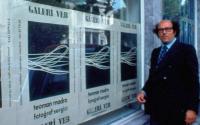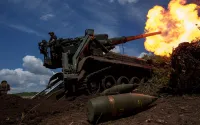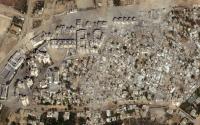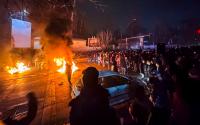2 January 2004David Morse |
The epic scale of suffering occasioned by the recent earthquake in the Indian Ocean should force us to re-examine our role in Iraq. At last count, more than 120,000 people were drowned in the nightmarish onslaught of tsunamis at the perimeter of the Indian Ocean. The number keeps rising. Now, with water supplies contaminated and water-borne diseases such as dysentery and hepatitis becoming rampant, the death toll could easily climb above a million. This is a natural disaster of Biblical proportions. President Bush's immediate response was to offer $15 million in aid - substantially less than the cost of a single F-16 fighter jet, and roughly what the Republicans have budgeted for Bush's inauguration. Later, stung by international criticism, Bush agreed to ante up $35 million, and finally ten times that. Even so, the newest pledge is a fraction of what we are spending every day in Iraq. The richest nation on earth should not have to be shamed into doing what is right. We Americans like to think of ourselves as a generous people, and if ever there was an opportunity for Mr. Bush to show that he is one of us, that moment has arrived. Now is the time for him to exercise international leadership in the service of humanitarian ends - to show that he is motivated by compassion and not simply by greed. Prior to the earthquake, our mistakes in Iraq were costing Iraqi and American lives. Now, as the death toll rises on the shores of the Indian Ocean, the quagmire in Iraq will be even more costly in lives thousands of miles away if it prevents us from contributing our fair share of humanitarian relief. Surely this earthquake carries a message. It is time to get out of Iraq. What is gained by staying? The fact is that in attempting military solutions to the political complexities of Iraq, we have failed. We toppled Saddam Hussein, but have brought Iraq into a state of civil war whose outcome lies well beyond our control. In the process, we have become so mired down as to have lost both our moral compass and the ability to project our strength in the world in places where it is honestly needed - most glaringly now in the region devastated by the catastrophic earthquake. Ideally, we should not leave Iraq in chaos. As a point of honor, we are obliged to keep our troops in place long enough to guarantee the January elections we have long promised. But despite the administration's efforts to portray it otherwise, the promise of elections is largely empty. Why? Because we failed once again at the political level. We never brokered a realistic power-sharing structure that would satisfy Sunni and Shiite and other factions early on, when such an agreement might have been possible. Consequently, we have seen the violence escalate ferociously as the elections approach, and their outcome seems ever less likely to produce a viable nation - let alone a democratic one. The message of this earthquake is writ large, for all to see. If we needed a sign from God, this is surely it. Get out of Iraq, where we are not wanted. Go where we are needed, where our ground troops and our massive logistical capacities can save innocent lives - where we can deploy water-purification plants, field kitchens, electric generating plants, and pontoon bridges. Where we can help keep civil order. Where we can airlift supplies and personnel to places isolated by flooding. Let us exit Iraq as gracefully as possible. Let us practice charity, as all the great religions of the world teach us. Let us give on a scale appropriate to our wealth and to the scale of the disaster. Let us honor those American soldiers who have sacrificed their lives by setting the best example we can, by following a path of righteousness. David Morse ([email protected]) occasionally writes for The Hartford Courant and lives in Storrs, Connecticut. His essays on Iraq have appeared online in Salon, Common Dreams, Counterpunch, and elsewhere. |
http://www.commondreams.org/cgi-bin/print.cgi?file=/views05/0102-10.htm






